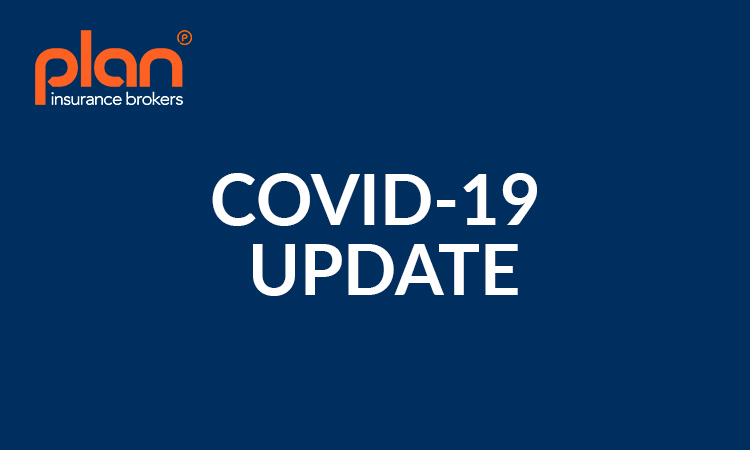Uncertainty Remains Whether Bonuses for Furloughed Sales Staff Can be Included?
Yesterday the government’s portal to reclaim payments for furloughed staff via the Coronavirus Job Retention Scheme went live. Unsurprisingly the site received huge levels of demand.
What You Can Claim for Furloughed Staff?
It’s been well documented that your organisation will receive a grant from HM Revenue & Customs (HMRC) to cover the lower of 80 per cent of an employee’s regular wage or £2,500 per month, plus the associated Employer National Insurance contributions and minimum automatic enrolment employer pension contributions on that subsidised wage.
Any voluntary automatic enrolment contributions above the minimum mandatory employer pension contribution of 3 per cent of income above the lower limit of qualifying earnings— (which is £512 per month until 5th April 2020 and will be £520 per month from 6th April 2020 onwards) will not be covered.
Since going live it’s become clear that you should calculate for any employees furloughed part-way through the month, payments on a pro-rata basis using the total number of days in the month rather than the number of working days in a month. You can also choose to top up an employee’s salary but it is not mandated by the scheme.
Furloughed Payment Calcuation For Employees Whose Pay Varies:
If the employee has been employed (or engaged by an employment business) for a full 12 months prior to the claim, you can claim for the higher of either:
- The same month’s earnings from the previous year
- The average monthly earnings from the 2019-20 tax year
If the employee has been employed for less than a year, you can claim for an average of their monthly earnings since they started work. If the employee just started working in February 2020, you can use a pro-rata calculation for their earnings so far to claim.
Fees, Commission and Bonuses Payments for Furloughed Sales Staff
Upon the Chancellors’ initial announcement regarding the scheme it was believed that fees, commission and bonuses should not be included unless it was compulsory. The consensus from many experts was that sales bonuses are discretionary and should be excluded from furlough calculations.
Protests were subsequently launched from sectors whose staff are heavily incentivised based on sales commission such as car dealerships. In turn HMRC clarified their position and said compulsory equalled contractual and fell under the rules governing those on varying pay.
This appeared to confirm that bonus payments could be included. Though the wording of many employment contracts actually define the payments as discretionary despite their being an obligation on behalf of the employer to pay them.
Fearing the consequences of a miscalculation, that for firms with several employees would be a significant sum of money owed to the HMRC plus potential fines or defence fees, many have decided against using regular take-home pay as the basis for their calculations. In some cases sales staff will be receiving less than the minimum wage during the lockdown period.
On April 16th, solicitor and legal adviser Nona Bowkis stated on law firm Lawgistics’ website that, “Things still aren’t very clear.” The HMRC are yet to provide further information on the matter but many including Lawgistics are, “On HMRC’s case to get clarification.”
Lawgistics highlight the fact that the schedule says, in essence, “That all regular salaries or wages can be included in calculations for furlough pay, regular commission.” It could easily be argued that bonus payments make up a legitimate element of that amount.
The law firm also point out that the information includes the wording that, any amount arising ‘from a legally enforceable agreement, understanding, scheme, transaction or series of transactions’ is permissible to include when calculating furlough pay. Understanding is the crucial word here. Previously legal rulings on calculating annual leave for people on commission have found in the employee’s favour. As Bowkis puts it:
‘We would argue that it is understood that commission is earned and paid on a regular basis and so is not discretionary at all. The word “scheme” is also useful as most companies will pay commission under the terms of a scheme, ie, you sell x amount of cars and we will pay you £x. ‘And finally, the fact a regular payment can arise from a “transaction” or a “series of transactions” would also suggest that as it is “custom and practice” to pay commission, these are regular payments.’
Lawgistics argue that there is enough in the legal wording to justify paying furlough that is based on regular commission payments. Though they add a cautionary note that employers will be left short if HMRC decides not to reimburse them. Their legal advice is for employers to check directly with HMRC if they aren’t sure, but to use all the above points to justify it.
If you decide against topping up or including bonus amounts in your furlough payment calculations, and you fear your employees may struggle financially in these challenging times, you could advise them to explore options to reduce their monthly expenditure. For example by utilising credit card and mortgage payment holidays.
The issue of bonus payments for furloughed staff is clearly another contentious and difficult decision for business owners to make during these unprecedented times. We hope the above information has shed some light on the issue for you? Please feel free to contact us with your opinion on the subject.


